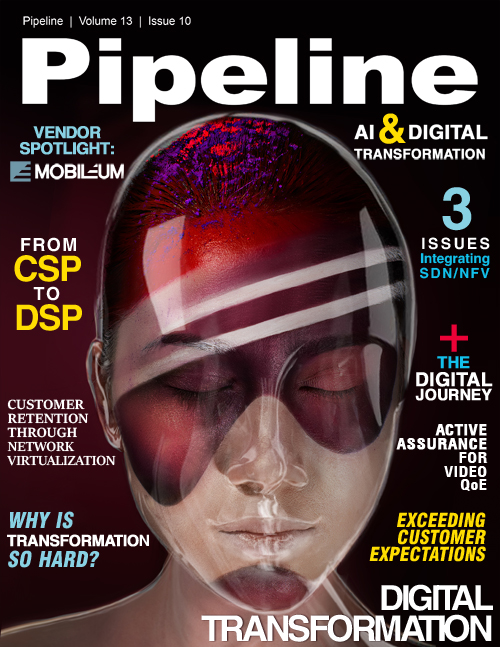Exceeding Customer Expectations Shaped by Digital Disruption
With access to streaming, video, premium and live content at their fingertips, consumers want their providers to recommend content, and devices, to choose from. And, the future consumer will not be satisfied with recommendations that are solely centered on video content. They will soon demand that service providers deliver offerings and recommendations that will make their digitally-fueled lives easier and more convenient.
CSG recently conducted a survey that polled nearly 1,000 millennials globally on their expectations for the future of mobile service in the next five years. Results showed that 41 percent of millennials want their mobile service to become more useful for the small things in everyday life, such as acting as a pass for the subway, closing the garage door and turning on the central air. Looking to the future, millennials see their service providers as not only completely integrated into their daily tasks, but also powered by a smart, intuitive artificial intelligence platform that can anticipate their needs and then take action on their behalf to the connected ecosystem around them. Almost half of survey respondents reported the desire for their service provider to evolve into a more intuitive personal assistant.
When it comes to personalizing billing offerings millennials demand that their mobile device should act as a replacement for their wallet. They want their devices to act as a credit card, a movie ticket, or a discount coupon that is automatically applied to their payment. Furthermore, millennial consumers want to access these services on-the-go and they want more of these capabilities. They will ultimately expect these devices to consolidate their monetization experience across platforms.
Unlocking the power of data
Service providers are tasked with the challenge of delivering a highly-personalized service experience with offerings tailored to the way customers individually use their cable and mobile services every day. The digital transformation – and corresponding AI, IoT, VR and AR technology innovations within it – has caused customer demands to become more complex and sophisticated than ever before. Although daunting, these customer demands can be achieved and even surmounted. How? The simple answer is customer data.
While data privacy concerns have often raised flags for consumers, the survey found that millennials at large are more willing to provide information about themselves if it means providers will be able to offer the customizable options they crave. In fact, 76 percent of millennials responded that they would be likely to let providers use their data to make entertainment recommendations based on their previous viewing habits. Furthermore, consumers understand that you get what you pay for and are willing to spend more money for the high-quality service experience they demand. The survey found that 59 percent of millennials are likely to spend more for a service specifically customized to their usage patterns across voice, data, entertainment and other personalized offerings.
As service providers across the board are answering the customer demand for unlimited data offerings they are also being presented with a huge opportunity to apply advanced analytics to these data offerings to power enhanced user experiences.
The connected consumer expects providers to anticipate what they want, which makes predictive big data analytics and customer insight models a critical toolset to harness. Analytics will drive decisions such as which up-sell, cross-sell, next best offer and even promotional items will generate a continual conversation with the customer – creating and strengthening trust and loyalty with the brand.
Furthermore, tapping into location data will enable service providers to effectively act as personal assistants to tomorrow’s digital consumer. Location data can be used to provide consumers with the small conveniences they desire. This could mean checking into their flight or sending a pop-up recommendation of a nearby restaurant, with a similar menu to the dinner they paid for on their mobile device last week, once they land in the new city.
Gaining a competitive advantage
Service providers are under relentless pressure to compete in the digital landscape against social media and technology powerhouses like Amazon, Google and Apple. As millennials – the first digitally native generation – increasingly become a revenue-generating consumer base, organizations across industry sectors are feeling the pressure to adapt and evolve their business to meet the needs of this generation. To gain and maintain a competitive advantage, service providers must connect consumers to each other and to the services they care about. To achieve this, providers must align their business processes and infrastructures to leverage data to provide a unified, personalized experience today and tomorrow while leveraging the network, device and consumer ecosystems in which they have built their business.



















